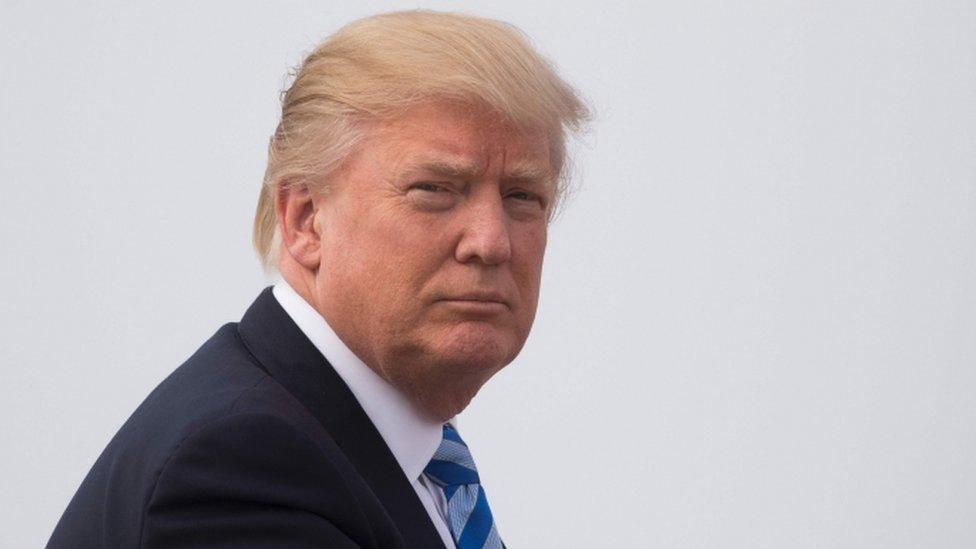Reality Check: How can Trump stop leaks to US media?
- Published

President Trump has called leaks to the US media about the Manchester attack "deeply troubling" and has said he wants the justice department to investigate and potentially prosecute those involved.
The identity of the Manchester suicide bomber and photos from the scene of the explosion were both published by the US media following leaks, causing frustration in the British government and security services.
What is the legal basis for stopping leaks?
President Trump has complained several times in his first few months in office about "criminal leaks".
Legal experts say much leaking of government information is not illegal. But prosecutions could be brought if information disclosed to the press or some other unauthorised person was protected by law. Leaks may be considered unlawful if the information is classified and disclosed without authorisation, or contains national security information that may be used to harm the US.
The Espionage Act 1917 is the main basis in law for prosecuting the leaking of classified information. Other laws can be used as a basis for prosecuting individuals who retrieve information from a computer without authorisation, punishing the theft of government documents or preventing people revealing the identity of a spy.
How does an investigation work?
Typically, an investigation starts in an agency outside the Justice Department, such as the Central Intelligence Agency or National Security Agency (NSA), security expert Selina Maclaren wrote on the Lawfare, external blog.
This referring agency fills out a form, known as "11 questions", which builds up a picture about the nature of the leak, where the information appeared, whether disclosure put the US at risk and how much of the leak was classified.
After these preliminary inquiries, the Federal Bureau of Investigation (FBI) would normally carry out the investigation proper. If the leak came from the Justice Department or one of its agencies such as the FBI itself, then the Inspector General, the Justice Department's independent watchdog, would handle the inquiry.
What about punishment?
Disciplinary action against a leaker may range from reprimands, loss of security clearance or sacking up to criminal prosecution and jail time.
Mr Trump's criticism of leaking may be particularly vehement but US presidents have often complained about leaks in government, David Pozen, a professor at Columbia Law School, said in an interview with the Washington Post, external.
Mr Pozen says it is not clear whether the president will succeed in reducing the leaks or even how seriously the punishment of leakers is being contemplated.
Mr Trump may find that any genuine campaign against leaking could entail "significant political and practical risks", he says.
How often are leakers prosecuted?
In 2016, there were 37 reports of leaks received by the Justice Department, according to the Federation of American Scientists, external. This is about average, going back to 2009.
But actual investigations are rare and prosecutions even rarer. According to the investigative journalism organisation ProPublica, external, there have been 11 prosecutions of leakers under the Espionage Act since 1971. Eight of these took place during the Obama administration.
Notable cases include Daniel Ellsberg and Anthony Russo, two analysts at RAND Corporation, who were indicted under the Espionage Act for leaking information on the Vietnam War, later known as the Pentagon Papers.
More recently, former NSA contractor Edward Snowden was charged with theft of government property and two counts of disclosing information under the Espionage Act. The recently released Chelsea Manning was convicted of multiple counts under the Espionage Act.
